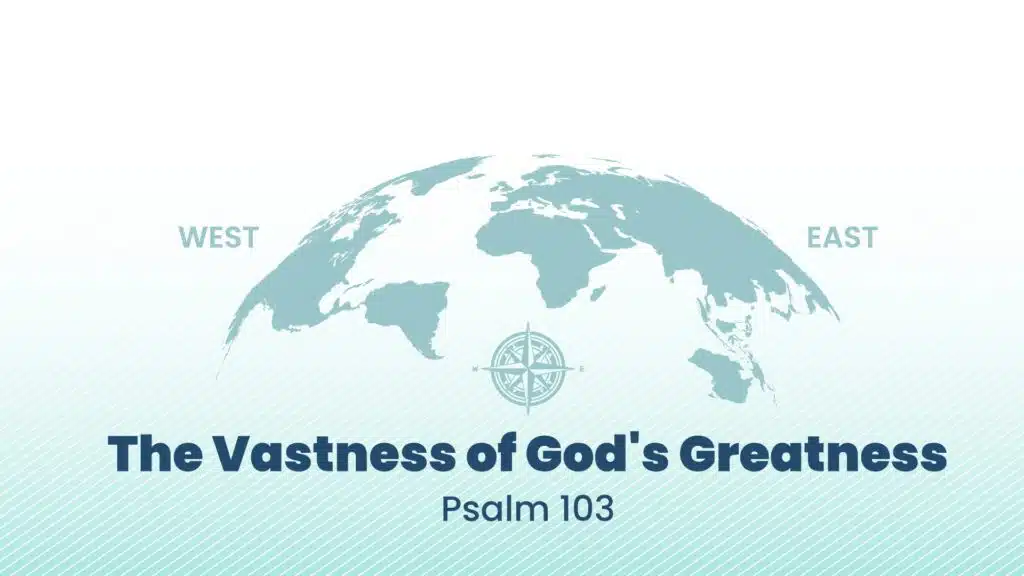Explaining and measuring the depth of our love for one another is sometimes hard. The Psalmist has the same struggles trying to identify how magnificent God is, in Psalm 103.
David makes this very personal and puts his whole self into this praise and adoration of God. He uses a variety of analogies and illustrations to explain just how great God is.
Psalm 103 Highlights:
1. God’s greatness versus man’s weakness. We can have assurance and hope as we consider just how great God is. It’s really unfathomable. God offers things to us we cannot get anywhere else. He heals, He redeems. He uses contrasts throughout to demonstrate the vast gulf between us and Him. The first one is God’s holiness vs. man’s lowlands. He also points out God’s eternal nature vs. man’s temporariness.
2. The vastness of God’s mercy. His mercy is beyond what we can comprehend. God’s power is such that He could use it for abuse and hurt. That’s how the world works, not God. He does not deal with us according to our sin, verse 10. The vastness of His love , the steadfastness of His love, is related to covenant loyalty. He will not fail us, ever. He shows compassion to those who hear Him. He knows we are frail, He understands our frame.
3. The comfort of God’s infinite dominion. He contrasts that with man’s wicked rule. His kingdom is defined by covenant faithfulness. When He satisfies us, it is good. The world is filled with evil, temporary rulers. God is “merciful, gracious, slow to anger and abounding in steadfast love” (Psalm 103:8). The best part is that this will never change. We will dwell with him in eternity in the glory of His kingdom. He will crown us with glory and satisfy us with good. Nothing on earth can fulfill in this way.
We should be impressed with God’s greatness, but also realize that He uses his superior nature to bless and benefit us. His might is a source of comfort to those who fear him!
John 3:16. For God so loved the world that He gave His only begotten Son, that whoever believes on Him shall not perish but have eternal life
Sermon by Brent Moody


